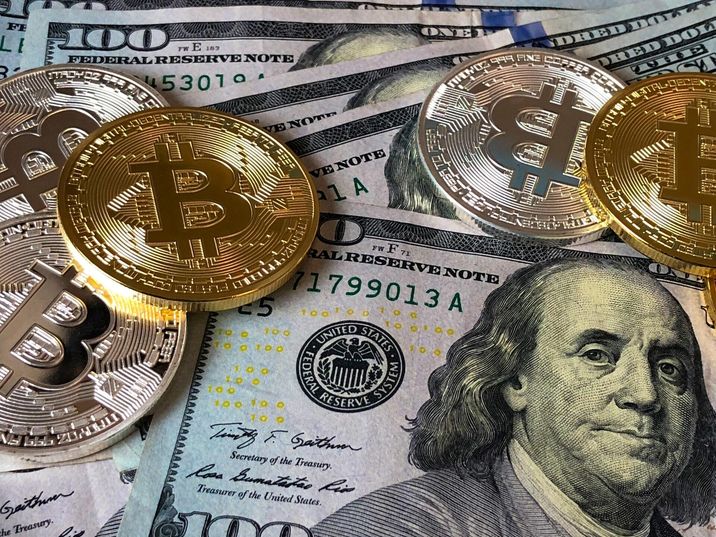Is Crypto Trading Halal or Haram? Research

Cryptocurrencies are one of the newest asset classes in the market today. There is a lot of educational material providing people with information on the workings of cryptocurrencies and blockchain technology. Nonetheless, there are still a lot of questions surrounding this asset class. One of the most important questions is whether crypto trading is halal or haram.
Today, we are going to see what research on this topic says. We will look at what the experts say and try to come to a conclusion. Ultimately, we will try to answer the question, Is Crypto trading Halal or Haram?
Understanding Islamic Finance
The laws that govern Islamic financial activities have been around for centuries. There are laws that clearly govern how Muslims should conduct themselves in financial transactions. These laws are in place to ensure people do not break Sharia law in financial transactions. For example, it is illegal to charge high interest on loans. This is viewed as exploitative and is frowned upon.
In forex trading, some of the laws that apply to halal trading have already been established. The best Islamic forex brokers make sure to cater to their Muslim clients by offering Forex Islamic accounts. These accounts are swap-free, meaning they do not charge rollover fees on overnight positions. Additionally, such brokers offer some of the best trading conditions in the market.
The availability of Islamic accounts on many forex brokers allows Muslim traders to participate in financial markets without worrying about breaking Sharia law. And as such, Muslim traders are now some of the most active investors in financial markets. Let’s now look at the cryptocurrency scene and see what research says.
Understanding Cryptocurrencies and Blockchain?
A cryptocurrency is a digital form of currency maintained by a decentralized network of nodes called a blockchain. The blockchain operates on a set of cryptographic algorithms that verify every transaction by utilizing the resources of the individual nodes. This provides a decentralized money system eliminating the need for centralized institutions like banks.
Currently, there are a number of businesses that have supported crypto payments from their customers. Therefore, we can say that such businesses view cryptocurrencies as accepted currencies with value. A number of reputable companies have recently accepted crypto payments, e.g. KFC Canada.
Nonetheless, a number of reputable individuals have rejected cryptocurrencies and argue that they do not have value. A number of people see this market as a bubble that will burst soon. Now that we have an idea of what cryptocurrencies are all about, let’s see what Islamic law experts say.
Is Crypto Trading Halal or Haram?
Generally, speculative trading is prohibited in Islamic finance. Well, most cryptocurrency trading activities are viewed as speculative. As such, many people have argued that trading cryptocurrencies are haram and that Muslim traders should stay away. However, Mufti Muhammad Abu-Bakar, a graduate scholar of Shariah law, argued that trading in all currencies is speculative in nature and that crypto trading is not any different.
Another concern that raises questions is figuring out whether cryptocurrencies are assets or currencies. Well, many scholars have argued that a currency doesn’t need to have an innate value. Instead, society just agrees on the value of a currency and its day-to-day utility. In this sense, cryptocurrencies can be currencies as long as society accepts them and agrees on their value and utility.
Nonetheless, there are a number of respected scholars who consider cryptocurrencies haram as they are not endorsed by any legitimate organization. Some scholars argue that these are simply high-risk assets with no legitimate backing and endorsement. Additionally, some people have argued that cryptocurrency trading has some element of betting and wagering. Considering this, crypto trading can be considered illegal under Sharia law.
Further, some authoritative figures have advised Muslim traders to avoid trading cryptocurrencies but only for a while. These people understand that technological innovation is inevitable and can have its benefits. But they call the market fast-moving with a lot of uncertainties. As such, they advise Muslim investors to protect their money and let the uncertainties clear.
Final Verdict
As it stands, there seems to be a lot of uncertainty even among the top Islamic finance scholars. Some consider these assets as currencies with value. All it takes is for society to agree on the value of the currencies and accept it in exchange for goods and services. On the other hand, many scholars have argued that cryptocurrencies do not have currency value and are too risky as they stand. Moreover, they argue that these currencies are not endorsed by any legitimate organization. Finally, a number of scholars advise Muslim investors to give this asset class more time to fully develop.
As it stands, it seems that the legitimacy of cryptocurrencies depends on the individual investor and who they want to follow. It also seems to depend on the location and the authority figures in the location. Nonetheless, more scholars have deemed crypto trading halal and haram.